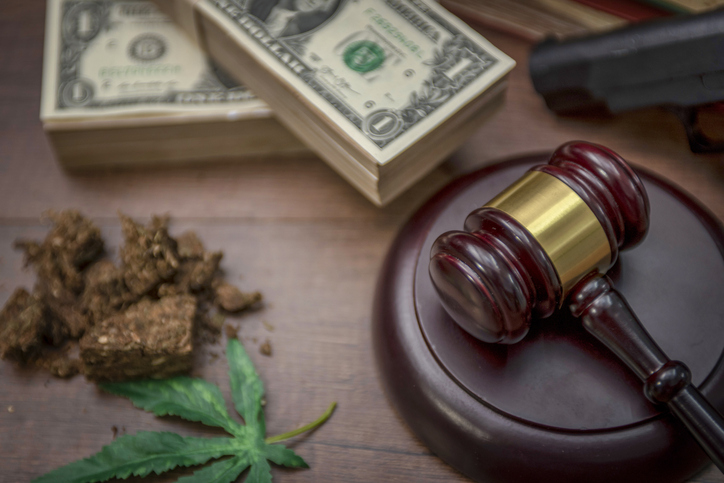This state is the worst for weed fans

Criminal justice reform is an essential facet of weed legalization efforts around the country. Advocates have pushed local politicians to pardon those charged with possessing now-legal amounts of weed and other drugs, and in some states, they’ve succeeded. Unfortunately, this isn’t the case everywhere, and some places are actively getting stricter on plant possession. On July 1, an Idaho law went into effect that mandates a minimum $300 fine for low-level possession of marijuana.
RELATED: Everyday THC goods get you busted in these states
Previously, judges had the final say on how much someone charged with misdemeanor cannabis possession (less than three ounces) was fined—the maximum amount was $1000, and they also had the option to waive the fine altogether. Now, all Idaho residents found with marijuana will have to pay at least $300.
House Bill (HB) 7 was sponsored by Representative Bruce Skaug (R-Nampa) and signed into law in February. The minimum charge for marijuana is now one of the highest of all misdemeanor charges in Idaho, including assault and domestic violence. He unsuccessfully attempted to pass a similar bill earlier this year, in which the proposed minimum fine was $420.
The bill’s consequences
According to the Idaho Statesman, Skaug claimed that the bill is the result of a request from a magistrate judge who observed inconsistent sentencing for misdemeanor marijuana possession. The Representative also said that the purpose of the legislation is to deter recreational use of the plant in the state, despite it being legal in the majority of its bordering states (barring Utah and Wyoming).
Skaug told the Idaho Statesman that the fallout from the passing of HB 7 is the worst he’s ever received, alleging that he was inundated with hateful phone calls and emails.
The bill didn’t pass without opposition from Idaho’s residents and other lawmakers. Jeremy Kitzhaber, an Air Force veteran who now struggles with terminal cancer, testified against it before the House Judiciary, Rules, and Administration Committee. He, along with other Idaho Representatives, voiced concern over the fact that most of the state’s other minimum fines are tied to violent crimes, and that many of those violations—like DUIs, sexual battery, and attempted strangulation—do not carry any. Rep. Barbara Ehardt (R-Idaho Falls) cautioned against establishing equivalency between these crimes and marijuana possession.
In 2022, a survey showed that two-thirds of Idaho residents supported legalizing medical marijuana, and 48 percent supported the same for recreational use. Data also shows that the state’s residents often travel to bordering locations like Ontario and Oregon to visit dispensaries—hilariously, Oregon weed sales along the Idaho border are 420 percent of the rest of the state’s average, according to the Oregon Office of Economic Analysis.
Idaho’s lawmakers seem adamant about continuing the crackdown on the plant. This year, they passed a resolution that would block future citizen-led efforts to legalize marijuana if passed. The measure will appear on Idaho’s general election ballot. If successful, weed advocates in the state would effectively be silenced.
Prohibition efforts are picking up speed in some parts of the country, and it’s hard not to be discouraged by them. One can only wonder who in the state will be the most negatively affected by this new law, and if the 2026 measure is passed, it’ll only be harder to reform.